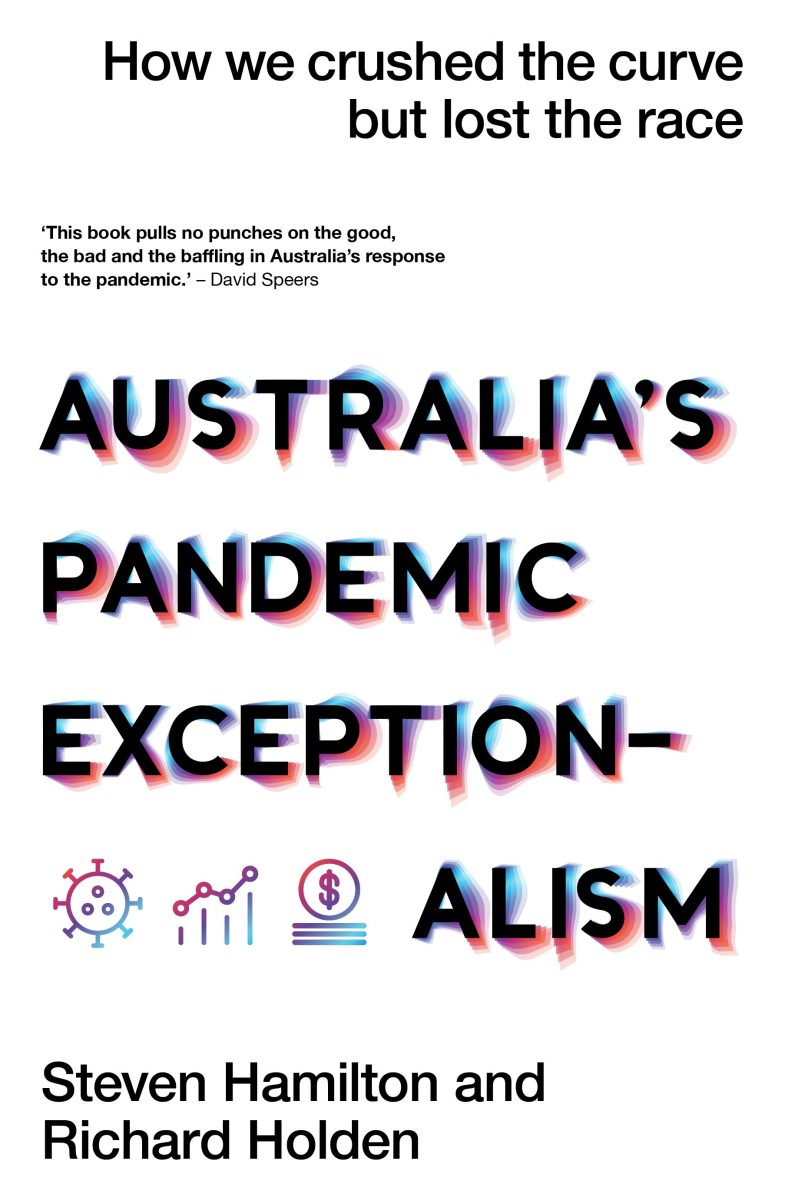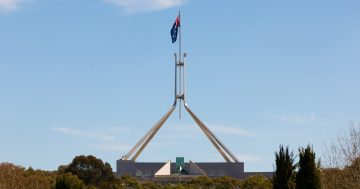
Internationally acclaimed economists Steven Hamilton and Richard Holden assess Australia’s public health and economic responses to the COVID-19 pandemic in Australia’s Pandemic Exceptionalism: How we crushed the curve but lost the race. Photo: Supplied.
Australia’s Pandemic Exceptionalism: How we crushed the curve but lost the race is a valuable addition, even a seminal work, of COVID-19 retrospective analysis that should be seen as an advantage.
This book is hard-hitting about the positive, the negative and the bewildering in Australia’s reaction to the pandemic.
Internationally acclaimed economists Steven Hamilton and Richard Holden assess Australia’s public health and economic responses to the pandemic. By analysing Australia’s many successes – and shocking failures – they offer crucial lessons for future crises. They claim Australia’s economic policy response to the pandemic was exceptional. Its public health response was decidedly more mixed, elaborating on two policy regimes and the two huge failures.
The introduction elaborates on “Our vaccine procurement strategy couldn’t have been more poorly designed if we’d tried. We didn’t adequately diversify our purchases of different vaccines, betting everything on a University of Queensland candidate and Astra Zeneca. We should have bought enough of all the major vaccine candidates to vaccinate the entire Australian population.”
In many ways, Australia handled the COVID-19 pandemic as well as any country – but what did we get wrong? Australia’s economic policy response was as effective as any other country’s, and dramatically better than most. Was this inevitable? Was it luck? Was it the product of great institutions? Or a few talented individuals?
Conversely, Australia’s public health response was far more mixed – and disastrous in parts. While we bounded out of the blocks at the start, grave failings on vaccines and testing meant we stumbled, escaping the pandemic many months later than other countries and plunging us into unnecessary lockdowns. Lives were lost and livelihoods were harmed as a result.
Both academics spend a lot of time comparing the United States and Australia, and the reasons are due to obvious connections.
In the foreword, Professor of Economics at UNSW Business School Richard Holden points out that although this was obviously a public health crisis, economic thinking would have an important role to play. There were also direct economic tools that contributed to issues such as vaccine supply.
“From my perspective, the reason to write this book is because the pandemic was hugely challenging for policymakers,” Holden points out. “And there was good and bad policy in Australia. As the book emphasises, the economic policy was exceptionally good, especially in the circumstances. And a good deal of the public health policy was also very good.
“But there was also the vaccine purchasing debacle which is arguably the single most costly public policy bungle in the history of this country. It delayed reopening by months, it precipitated months of lockdowns that could have been avoided, and it cost lives.”
Co-author Hamilton, Assistant Professor of Economics at the George Washington University in Washington, DC, is vocal and admits both he and Holden were quite hard on the government through 2021 regarding the vaccine rollout.
“Rightly so, as it turns out,” Hamilton writes. “After we wrote a piece pointing to a failure to procure sufficient redundancy of vaccines, my boss at the time let me know that a Liberal MP had reached out specifically to tell him that our piece was ‘absolutely disgraceful’ …
“The status-quo bias in Australian policy is incredibly powerful. One thing that would help is to have a policy discussion that is more openminded, more inclusive, more democratic. That lifts people up rather than pushes them down … Australians in positions of power need to take the time and effort to assess arguments on their merits rather than dismissing them on the basis of the experience or credentials of the person making them.”
Hamilton has been quoted in The New York Times as a “leading voice on pandemic economic policy”.
According to the director of infectious diseases at Canberra Hospital, and Australia’s deputy chief medical officer during the pandemic, Dr Nick Coatsworth, the authors reveal the duality with a sense of gravity.
“Holden and Hamilton deliver a sobering account of the duality in Australia’s pandemic experience – near-perfect crisis decision making in the heat of the moment, followed by a notable lack of forethought as the pandemic unfolded,” Dr Coatsworth says. “In terms all Australians would understand, we played a blinder in the first half, had an awful third quarter, and limped over the line in front.”
Hamilton and Holden want us to gain knowledge through failure. Embrace learning opportunities: we “need to learn from mistakes because if we don’t then we are condemned to repeat them”.
Australia’s Pandemic Exceptionalism: How we crushed the curve but lost the race, by Steven Hamilton and Richard Holden, UNSW Press, $44.99.









